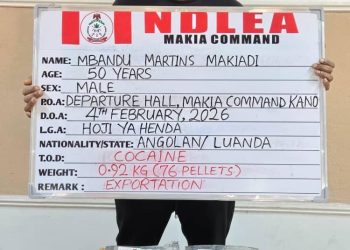By Nkechi Eze
The Federal Government of Nigeria has reaffirmed its strong resolve to eradicate all forms of violence against children as it hosted the first regional meeting of African Pathfinder countries under the Global Partnership to End Violence Against Children.
The two-day summit, held at the Transcorp Hilton Hotel in Abuja and concluded on Thursday, brought together top-level representatives from across the continent to foster collaboration, share groundbreaking practices, and drive meaningful, measurable progress in child protection efforts.
In her opening address, Minister of Women Affairs, Imaan Sulaiman-Ibrahim, welcomed delegates with heartfelt appreciation for their shared commitment to protecting Africa’s children. She described the gathering as a pivotal moment in the continent’s unified fight against child abuse, exploitation, neglect, and other harmful practices.
“It is both a moral obligation and a shared duty to ensure that no child lives in fear or is left behind. This summit represents more than symbolism, it is a decisive call to action for concrete, time-bound outcomes that secure the well-being and future of our children.” The minister said.
She reaffirmed Nigeria’s role as a dedicated Pathfinder nation, outlining ambitious national goals such as reaching two million vulnerable children with support services by 2030, eliminating harmful practices in 18 states by 2028, enforcing child rights and anti-violence legislation, scaling up the Safe Schools Initiative, and boosting budgetary investment in child protection.
The minister expressed gratitude to partners like UNICEF and the Pathfinder Initiative for their continued support. She also highlighted Nigeria’s commitment to embedding child protection within broader national policies, spanning education, digital safety, environmental resilience, and social development.
Adding to the discussions, Minister of State for Labour and Employment, Nkeiruka Onyejeocha, reaffirmed Nigeria’s adherence to global standards on child welfare. She emphasized the universality of violence against children and noted Nigeria’s ratification of key International Labour Organisation (ILO) conventions on child labour, underscoring efforts to empower youth through education, skills training, and access to digital tools.
The opening day set a determined and hopeful tone, with delegates agreeing that meaningful impact requires more than declarations, it demands decisive, accountable actions.
As the summit progressed, participating nations worked toward adopting shared frameworks and bold commitments aimed at securing a safer, brighter future for every African child.













